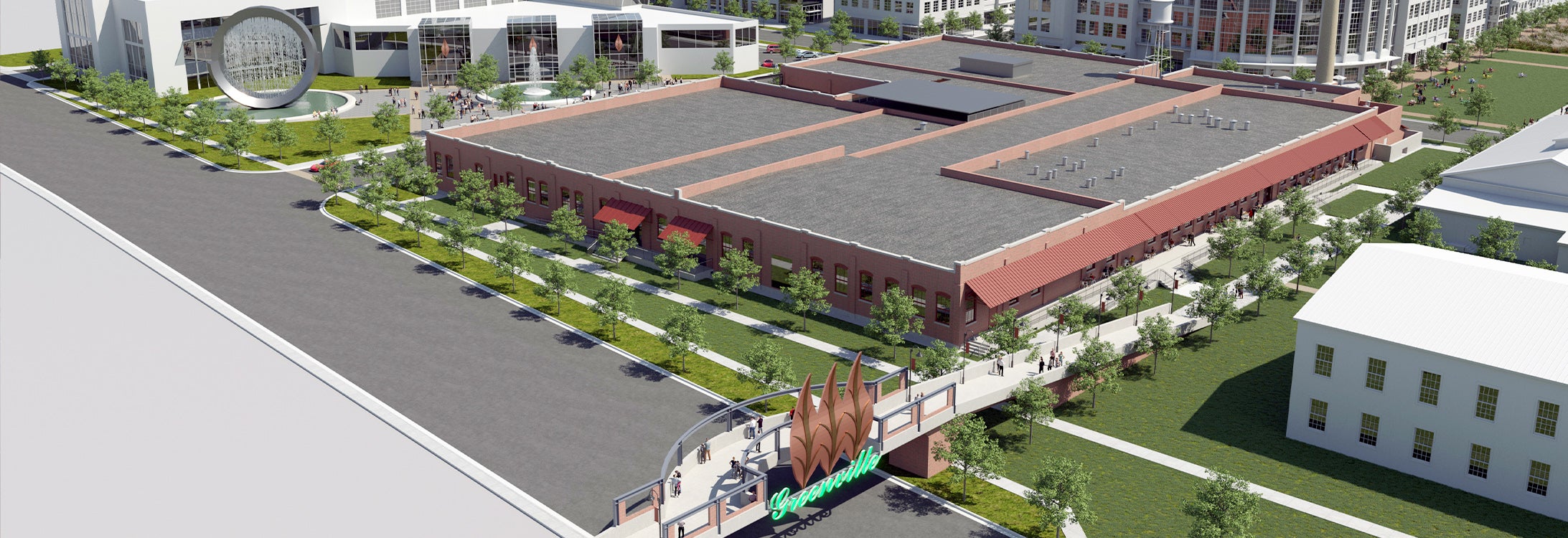Warehouse District
Intersect East
ECU is transforming its former warehouse district into its next major phase of the East Carolina Research and Innovation Campus (ECRIC), Intersect East. Intersect East encompasses more than 19 acres of converging opportunities to restore and reuse valuable historic properties and accelerate reinvestment activities within Greenville’s center city and arts and innovation district. These efforts advance the development of collaborative research, innovation and economic development spaces.
The eight-year master plan includes the development or repurposing of 14 buildings and an investment of more than $150 million. The completed project is expected to create up to 1,500 jobs with a financial impact exceeding $141 million annually with $3 million in annual tax revenues.
Highlights of the plan include:
- A new, high-tech research and innovation hub with an iconic water feature adjacent to the 10th Street connector;
- A renovated Export Leaf Tobacco factory building that will keep intact the district’s historic water tower and factory smokestack;
- The reclamation of an abandoned railroad track that connects Dickinson Avenue to campus that will be converted into a hiking-biking trail;
- A biopark at the heart of the Intersect East campus; and
- The development of residential, office and parking space for professional level students and young professionals.

Working with Elliott Sidewalk LLC, the area will be transformed into a campus of innovation over the next several years and will serve as the gateway to the many talents of faculty, students and staff at ECU. Along with industry, government and agency partnerships, solutions to issues will be discovered here. Over time, up to 800,000 square feet of space and support facilities will be developed to support the millennial campus mission.
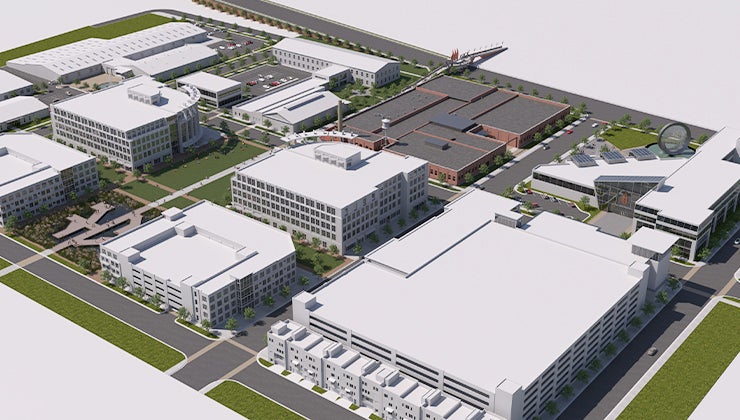
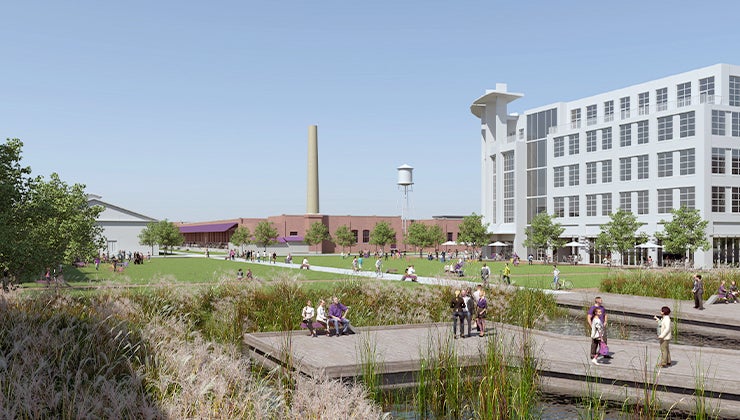
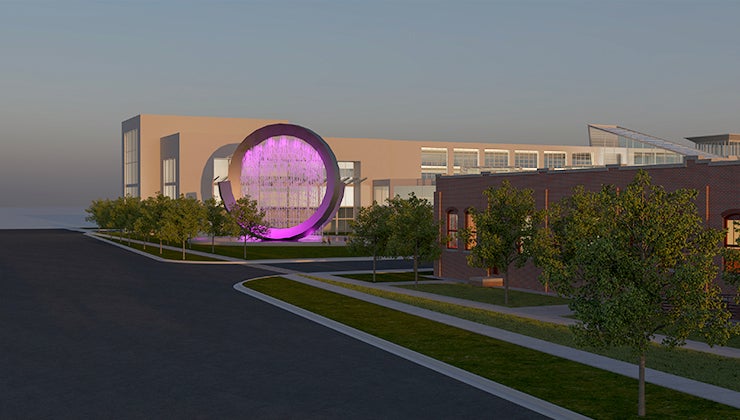
Life Sciences and Biotechnology Building
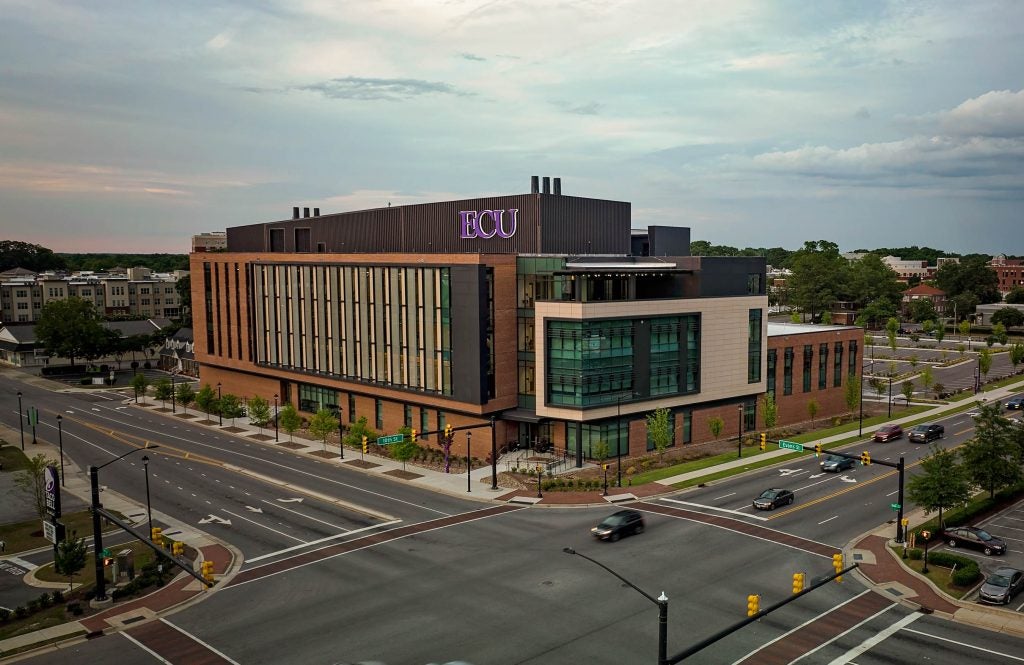
The new Life Sciences and Biotechnology Building opened on the campus of ECU in November 2021. Featuring four stories with wet bench and computational laboratory spaces, researchers across a variety of academic disciplines can utilize the space for discoveries.
Funded through the Connect NC Bond Referendum, the building serves as the new home for the university’s department of biology and house researchers with interests and expertise in the fields of biotechnology, bioprocessing, biophysics, biofuels, imaging and sensor development, and environmental engineering.
